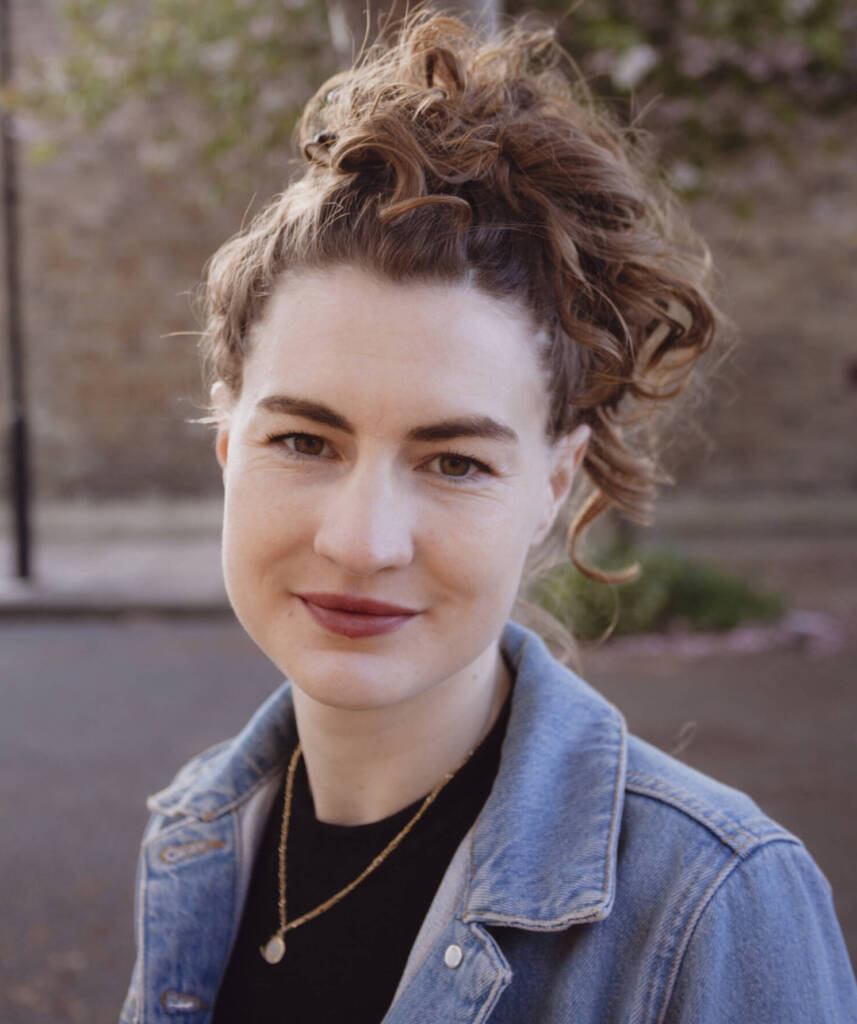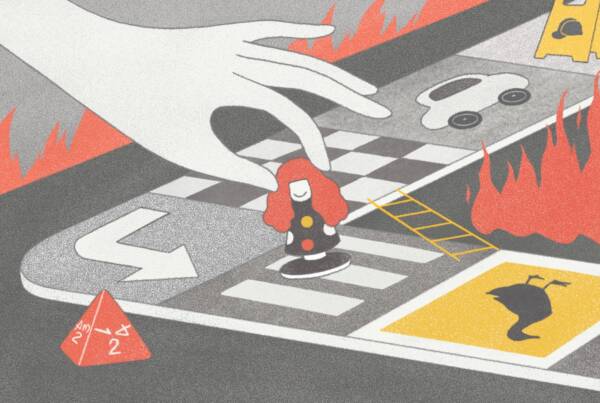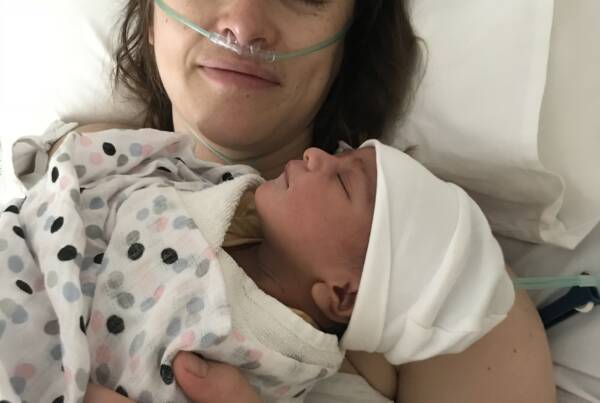Interview of Lucia Osborne-Crowley by Freya Bennett
Hi Lucia, how are you at this moment in time?
Hello! Thanks so much for having me! What a great opening question – overall, I’m good. Publishing a book is always so nerve-wracking, so I’ve been very up and down these last few weeks. I’m very nervous that the book is out in the world and people are starting to read it! Also, the book is predominantly about shame and trauma, and how being a victim of violence leads us to feel chronic shame, and the thing about my chronic shame is that it’s at its worst when I feel exposed or vulnerable in a public setting – so publicising a book really sets me off sometimes! But that’s always why it’s so important to do it. So most of all, I am feeling grateful that I got to write this book and grateful that I get to talk about it.
Thank you so much for taking the time to answer these questions about your new book — which I absolutely adored by the way! I interviewed you (in person!) in March 2020 before the pandemic really took hold and you were touring your first book ‘I choose Elena’. I remember chatting to you about the process of writing that book and you said had you known how hard it was going to be, you may not have written it. How was it writing this second book with that experience behind you?
Ha, another great question! I think my answer is actually the same as the one I gave you that day – I really thought that the second book on trauma would be easier than the first, but it wasn’t, and if I’d known that I might have written a fantasy novel or something! But I’m so glad I didn’t know how difficult it was going to be, because I’m so glad I wrote it and didn’t shy away from it.
You wrote ‘My Body Keeps Your Secrets’ during the pandemic, how was it writing about trauma when also in lockdown?
It was so strange! I was ‘shielding’ for a big chunk of 2020 – that’s the term the UK government uses for people with disabilities who are particularly vulnerable to severe complications from COVID-19 and were ordered to not leave their homes/bedrooms for any reason during lockdown – and that’s when I wrote this book, so it was weird writing it while feeling very trapped and feeling all my PTSD symptoms flare up as a result. It definitely made things harder in some ways, but it also meant that all of my interviews had a really useful jumping off point. Almost all of the people I spoke to were also feeling their PTSD flare up during lockdown, so that was often a really easy wedge for them to use to tell their stories, if that makes sense? It gave us a really solid common ground on which to begin.
You weave your story throughout the stories of those you interviewed for My Body Keeps Your Secrets, did you feel you could relate to everyone you spoke to? Are you still in touch with the participants?
Yes, I definitely felt I could relate to them all in at least one way or another. Of course, I intentionally made sure that all the stories were very very different, so for most of the participants there were huge parts of their stories I don’t have any personal experience of, but I always found that there were feelings, sensations or fears that we shared. We always found something that connected us, which was far and away my favourite part of this book. And yes, I am in frequent contact with all of the participants still! They are all now very good friends of mine.
Can you talk us through a day in the life of writing a book?
Of course! So for me, writing has two very distinct stages: building out and cutting down. When I first start writing a book, I will focus only on the writing itself and will not turn my mind to editing at all. So I just write and write and write until all the days that I wanted to express are on the page in some form or another. That part of the process looks very frenzied and chaotic, to reflect the chaos of trying to get all these ideas down. So it’s usually hours and hours of writing in bed, not bothering to cook or socialise or take breaks, ordering take-away, letting mess pile up until I’ve reached a deadline that’s meaningful in the story. Then the second part is editing – when I go right back to the beginning and start making choices about structure, sentences and voice and those sorts of things. With non-fiction, this is also the fact-checking stage. Those writing days look very different – I emerge from my little chaos hole and sit at a desk with a coffee and work 9-5 in my more normal ‘work’ mode, if that makes sense.
How do you decompress after interviewing and writing about trauma and rape? What self-care actually works for you?
I’ve found the absolute best thing for me is reading novels or non-fiction books about subjects and worlds that are completely separate from what I’m writing about. For example, when I was writing MBKYS I became obsessed with tech journalism for some reason – I just loved reading longreads about data breaches and 5G networks and high-frequency trading, ha. I don’t know why! The same goes for movies and TV shows and documentaries and art galleries – immersing myself in other peoples’ creations, and other peoples’ worlds, is the best way for me to decompress from the processing of building my own.
You talk about discovering your bisexuality and how different it was being in a sexual relationship with women as opposed to men, what do you wish your younger self knew about this and what advice would you tell other women who are feeling their queerness but not sure how to express or move forward?
Another great question! I wish my younger self had access to all the wonderfully inclusive discourse around queerness we are seeing now. I remember that almost all I ever heard about bisexuality as a teenager was that it was either a smokescreen for being gay or a lie from a straight person in order to get male attention. I had no concept that it could be valid in itself or that it could be a part of me even while I am in different-gender relationships (as I am right now!). The women I have dated, especially soon after I came out, were incredibly helpful to me in this regard, and I am so grateful to them for that. So really, I wish I could tell her: just go for it! The community I met once I was brave enough to be myself were the people who taught me the most abut inclusivity and community.
As an endo warrior who has been researching trauma, inflammation and chronic illness, what do you wish was more mainstream for those suffering endometriosis?
So many things! Firstly, I wish we as a society had a much better understanding of how debilitating it actually is as a condition. We are seeing this trickle through, but we’re not there yet. I wrote a piece last year about a surgeon who believes that endometriosis should be considered a form of cancer, because it metastasizes in the same way and because it takes a similar toll on the sufferer’s physical health. I think things like that need to be much more widely understood. I also really wish people had a better concept of fluctuating disabilities – the idea that you can be mobile one day and immobile the next, and that you can’t actually control when that happens. I still have friends who get mad at me when I have to cancel plans with them on a Tuesday but they know I saw another friend on the Monday, as if I’m able to plan when flare-ups happen? It really frustrates me.
And of course, the main one: I wish we had a better understanding of the connection between illnesses like endometriosis and physical or emotional trauma, because once we understand that we can give people better treatment early on to help calm down their PTSD symptoms, and hopefully prevent the onset of diseases like endo.
What can we do to support our friends going through a chronic illness journey? How can we be the best ally’s possible?
Another great question! I think the main thing is to make sufferers feel loved even when they are forced to let people down. The people who support me best in my life are the ones who are able to do this. The people who are able to make me feel okay about needing to cancel plans and who are able to explicitly say: I know you’re not choosing this. I know you would much prefer to be out with me having fun than in bed in pain.
Can you leave us with the best thing that helped you get through lockdown?
Audiobooks!!! I already loved audiobooks because they mean I can read when I’m too ill to sit up, or when I’m in hospital, but they took on a whole new meaning in lockdown. Like most people I know, I really struggled to concentrate in lockdown – the lack of structure as well as the constant low-level anxiety meant that sitting down and reading a book was really hard. But lying down or going for a walk and listening to audiobooks was an absolute saving grace. I read so many novels this way during lockdown and I found it so comforting! Also, malt flavoured ice cream 😊







